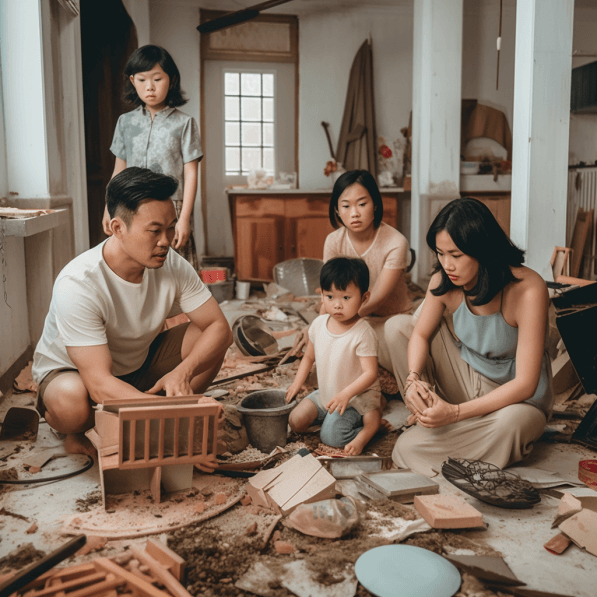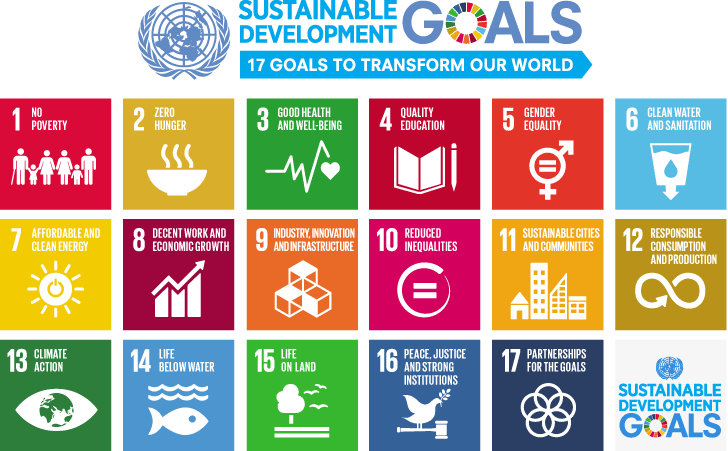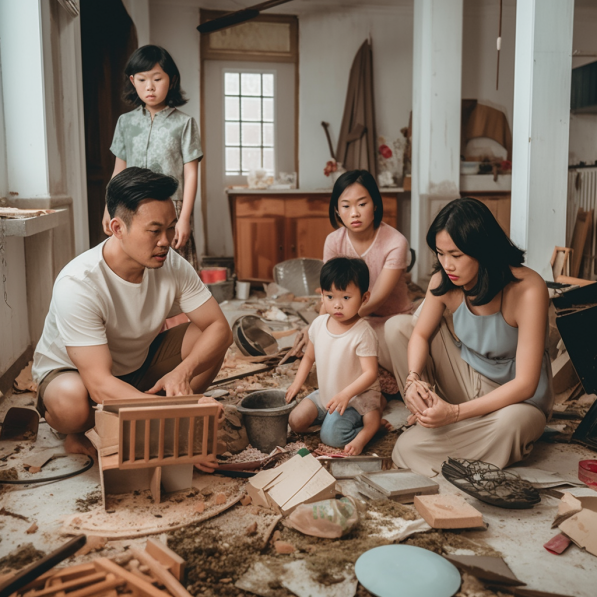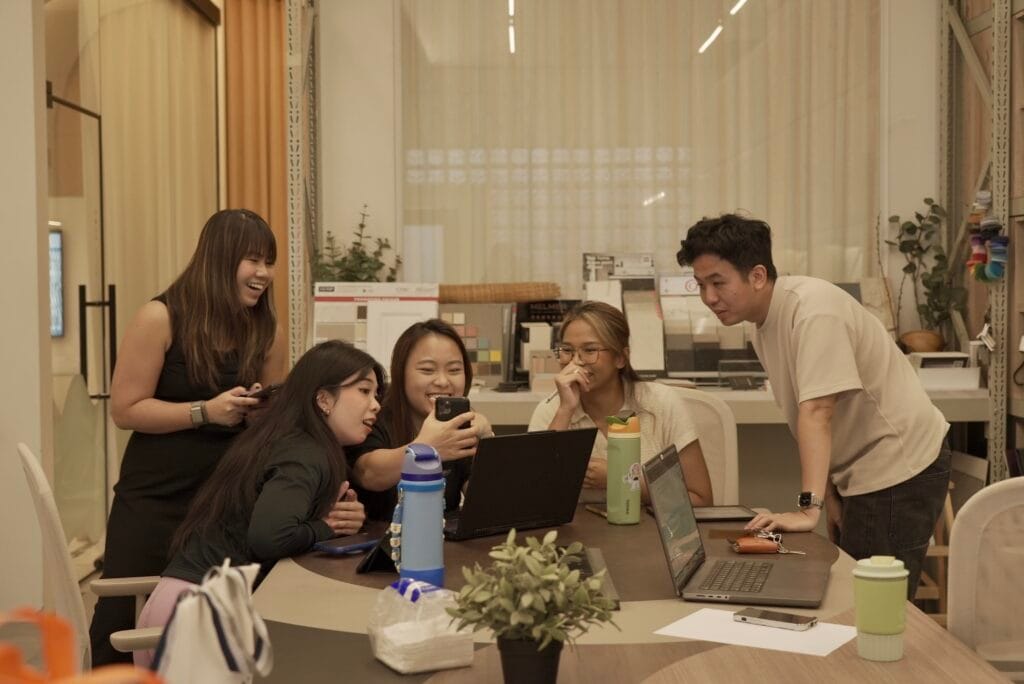I scream: ice cream!
‘To litter or not to litter’, that is the question.
As a young boy, I found myself standing by the roadside, savouring the sweetness of an ice-cold treat. A seemingly insignificant decision lay in my hands—the disposal of my ice-cream wrapper. Its purpose served, it was now just another piece of waste. I had two options: discard it right there on the side of the road or walk an additional 50 meters to the nearest bin. In this small decision lay the heart of an age-old dilemma — choosing the easy, convenient path versus the slightly harder, more conscientious one. Tossing the wrapper to the side of the road would barely register as a blip on the world’s environmental radar. But multiply that solitary act of littering by thousands, even millions, and suddenly, we’re staring at mountains of garbage, choking waterways, and polluted landscapes.
Today, as the leader of an organisation, the stakes are much higher. My decisions now hold the potential to shape my immediate environment, and communities and potentially impact future generations. Our company’s environmental footprint is that same ice-cream wrapper, but now the bin is not a mere 50 meters away. Instead, it lies at the end of a complex path of sustainable business practices. Yet, trying to understand the vast data collected on the subject of ‘sustainability’ and understanding our collective responsibility to our communities and our future, I’m convinced that this path, however challenging, is the only option we truly have.
Ice-cream Land did not win the Sustainable City Award
Defining Sustainability and Its Importance in the Construction and Renovation Industry
‘Sustainability’ as defined in the World Commission on Environment and Development’s 1987 Brundtland report ´Our Common Future` as ‘development that meets the needs of the present without compromising the ability of future generations to meet their own needs’. Sustainability encompasses more than we often realize.
For the construction and renovation industry, it means creating built environments that are not only energy efficient and environmentally friendly, but also economically viable and socially equitable—all while ensuring durability and resilience.
The construction and renovation industry holds a significant responsibility given its substantial contribution to global resource consumption and waste generation. Embracing sustainability in this industry can lead to a reduction in energy consumption, conservation of resources, minimisation of waste, and the enhancement of the quality of life for building occupants and the overall well-being of communities.
At BuildBuilt, our approach to projects centres around people.
We’ve been working diligently, creating a positive impact under the Environmental, Social, and Governance (ESG) umbrella, particularly the ‘social’ category. We’ve built a robust team by focusing on both professional and social needs under the unique labour conditions of our industry, fostering an exceptional workplace environment. As part of the Singapore Furniture Industry Council (SFIC), BuildBuilt has taken a step further by investigating our current processes to start our alignment to the United Nations’ 17 Sustainable Development Goals (SDGs), a comprehensive framework designed to address global challenges like good health and well-being, and quality education.
Yet, sustainability remains a complex and challenging concept.
The Complexities and Contradictions of Sustainability
Getting lost in the sustainable labyrinth
Navigating sustainability is like moving through a labyrinth. The 6 R’s—reduce, reuse, recycle, repair, rethink, and refuse—are fundamental to the sustainability ethos but can sometimes be in conflict. For example, ‘rethinking’ may not be feasible in all situations, particularly when dealing with essential goods or services, or when alternative solutions are limited or not yet available. Or ‘recycling’, while essential, can also lead to increased energy consumption and pollution during the recycling process.
Another aspect of this complexity is the balance between social equity and environmental conservation. Long-term ‘planet’ gains may come at the cost of short-term ‘human’ losses, and prioritising one aspect can inadvertently harm the other. A case in point is Japan’s “wood shock”. Despite vast forested areas, high-quality wood remains expensive and scarce due to strict regulations, limited domestic production, and environmental considerations. As a result, Japan imports large quantities of wood for short-term gain, raising long-term sustainability concerns.
A circular argument begins, and no matter which part of the aisle you belong to, no one solution would seemingly be the ultimate cure.
People and Relationships are at the Heart of Sustainability
In the face of such complexities, BuildBuilt must create her own framework for responsible decision-making.
Guided by our mission—to create better experiences every day through meaningful relationships and to enable others to live well—we focus on service, purpose, authenticity, responsibility, value creation, and empathy. These values help us navigate the intricacies of sustainability.
Our commitment is to people first—our customers, colleagues, and communities. Our aim is to build meaningful relationships, create positive impacts through our services, and foster a supportive work environment. But integrating sustainability into business practices comes with its own set of challenges.
To use an analogy to cast light on our daily dilemmas on sustainability, let’s consider a family planning to renovate their home with several project objectives—budget, function, aesthetics, and timelines. Adding ‘sustainability’ to the mix could strain these objectives. Sustainable materials are often more expensive, impacting the budget. Repurposing furniture and materials might affect the overall aesthetic and durability of the renovation. Employing sustainable construction methods could prolong the project’s timeline. Despite the noble intentions of sustainability, the family must weigh the costs and benefits of various options, considering the impact on their project objectives, the environment, and the family’s short or long-term well-being.
AI’s best attempt to illustrate a family arguing about their sustainability goals during their home renovation.
Agreeing on the Simple Truths of Sustainability
Despite these complexities, some fundamental truths about sustainability should be universally agreed upon (at least BuildBuilt has come to terms with these!):
Finite resources: Earth’s resources are limited; we must use them judiciously.
Waste generation: Minimizing waste is essential for reducing our environmental footprint.
Interconnectedness: Our little actions have far-reaching consequences.
Need for collective action: Addressing sustainability requires collaboration and shared responsibility.
The precautionary principle: We should err on the side of caution regarding potential environmental harm.
An authentic, honest and people-first approach
Building on these truths, BuildBuilt has established guiding principles to incorporate ‘sustainability’ into our processes. Emphasising authenticity, honesty, and a people-first approach, our framework aims to balance the triple bottom line—people, planet, and profit—ensuring all business decisions consider the well-being of all stakeholders.
To achieve this, we will embed circularity design principles into our projects and company operations. This involves rethinking our design, construction, and renovation processes, maximising material usage, and minimising waste at every stage of the process.
Starting Small
Though we’ve barely started, we’re fully aware of the enormity of this endeavour, and our approach is to start small, keeping people and our environment at the forefront.
We understand that the journey towards sustainability in Singapore is a continuous process that demands learning, adaptation, and collaboration. As such, we warmly invite you to join us in our discussion to create a more sustainable future for our industry and our world. If you’re interested in learning more about BuildBuilt’s sustainability goals or exploring potential collaborations for a better future, please get in touch with us. Together, we can make a difference—one project, one partnership, and one step at a time.















